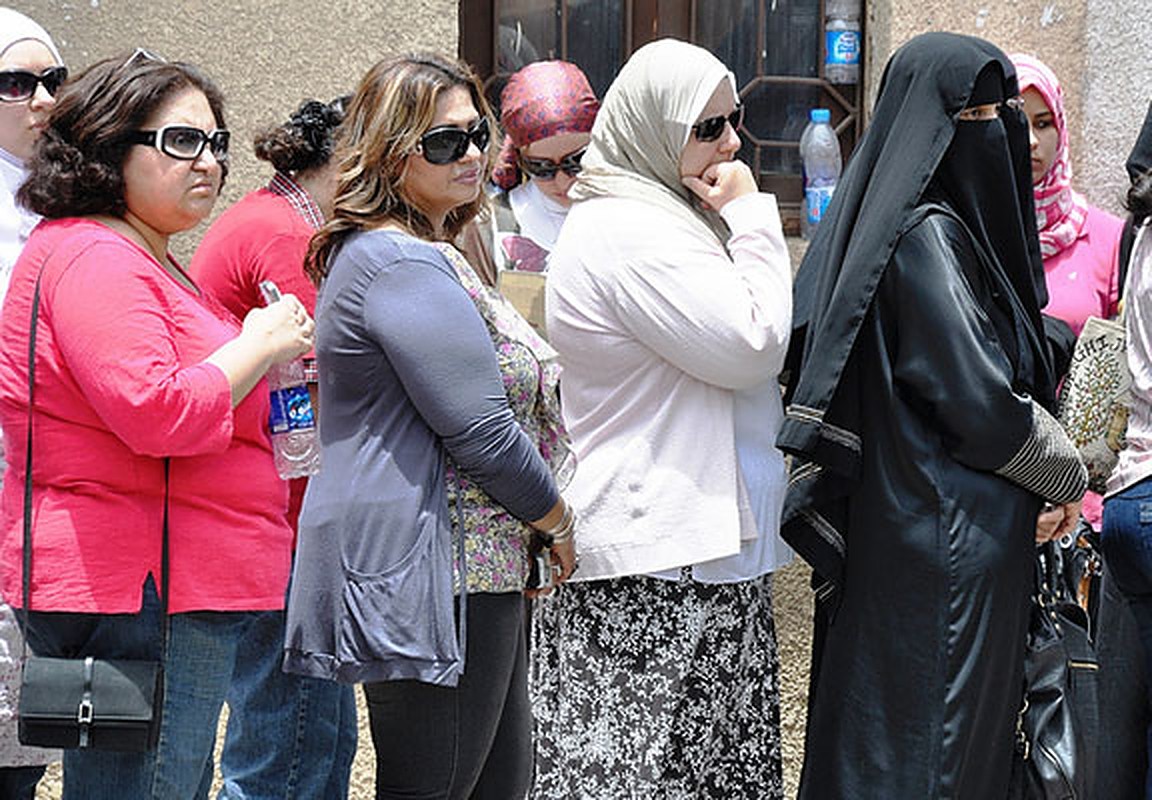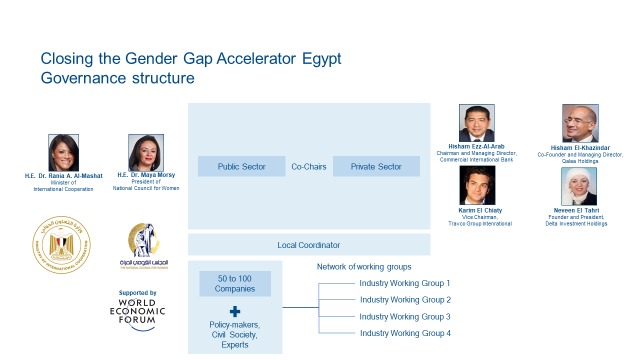
Egypt’s Ministry of International Cooperation, the National Council for Women (NCW), and the World Economic Forum (WEF) have launched the ‘Closing the Gender Gap Accelerator,’ a national public-private collaboration model that allows governments and businesses to take decisive action to close economic gender gaps.
Alongside eight other countries who have implemented it, Egypt is regarded as the first country in the Middle East and Africa to adopt this kind of public-private collaboration model supported by the World Economic Forum.
It supports public and private leaders “in shaping innovative pathways to promote gender equality, diversity, inclusion and economic mobility through a three-year action plan, which is central to Egypt’s reform agenda,” according to what the Ministry of International Cooperation said.
What you need to know about the accelerator
Essentially, the model helps public and private leaders design innovative pathways for growth and shaping tomorrow’s education and workforce landscape, as well as to push gender parity, diversity, inclusion and economic mobility.
To reflect each country’s local context, it is preceded by a system analysis done on the country level in coordination with key stakeholders and local coordinators.
Highlighting women’s participation as macro-critical is also a key factor behind this accelerator, as Minister of International Cooperation Rania Al-Mashat said that “the launch of Egypt’s Gender Gap Accelerator highlights the government’s continued commitment to applying needed policies and structural reforms to push the gender agenda and empower Egyptian women, as women’s participation in the economy is macro-critical.”
The minister added that it will bring together multi-stakeholder actors across the public and private sectors to generate local insight, develop local needs-based action plans and drive their execution, and help expedite the implementation of the fifth goal of sustainable development (SDG5), which relates to achieving gender equality.
Four key objectives are prioritized
(A)Preparing women for the post COVID-19 world of work
(B) Closing gender gaps in remuneration between and within sectors.
(C) Enabling women’s participation in the labour force
(D) Advancing more women into management and leadership
Internationally, each country’s accelerator is part of the global network for co-creating solutions through the World Economic Forum’s Platform.
Who are the stakeholders?
The Closing the Gender Gap Accelerator will be led by the Ministry of International Cooperation and the NCW, while four leading CEOs covering a wide spectrum of businesses will lead the Accelerator from the private sector.
The private sector representatives include the Commercial International Bank (CIB), Qala’a Holdings, Travco Group International, and Delta Investment Holdings.
It will engage with up to 100 private companies in various economic sectors, in addition to civil society experts targeting the endorsement of policies and plans to advance women’s economic empowerment in different fields and on all levels.
This way, public and private sectors will be brought together to generate in-depth local assessment, as well as develop needs-based policies and action plans to address all deficiencies hindering complete and equal female economic participation, according to the statement.








Comment (1)
[…] Egyptian Streets […]